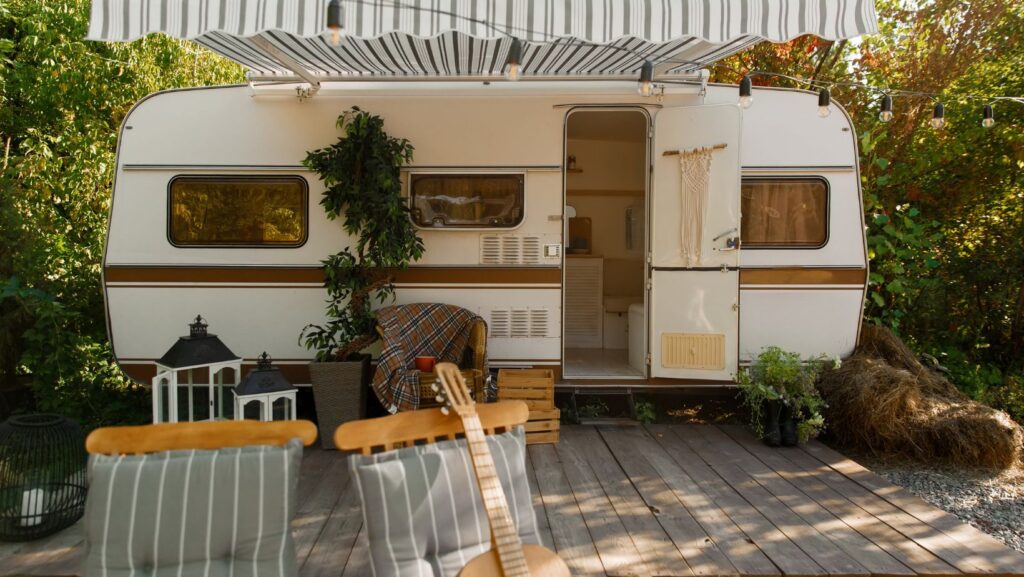Embarking on the journey to homeownership? Consider a path less traveled: buying a trailer home. It’s an affordable, flexible, and increasingly popular housing choice. But, like any significant investment, it’s not without its complexities.
Navigating the world of trailer homes can be daunting, especially for first-time buyers. From understanding the different types of trailer homes to finding the perfect location, it’s a process that requires careful consideration and informed decision-making.
In this article, we’ll unravel the intricacies of buying a trailer home, providing you with the knowledge and confidence you need to make the right choice.
Buying a Trailer Home
When embarking on the journey of buying a trailer home, it’s critical to understand what this type of residence entails.
What is a Trailer Home?
A trailer home, often referred to as a mobile home, represents a type of prefabricated structure built in factories. Unlike conventional homes, these residences aren’t constructed on-site but are instead transported to the desired location. They’re built on permanently attached chassis to facilitate transportation. A trailer home offers the flexibility of movement, enabling homeowners to change their location relatively easily if required, providing a unique advantage over traditional brick and mortar homes.
Different Types of Trailer Homes
Trailer homes come in various types, offering potential homeowners an array of choices. Understanding the different types aids in making an informed decision when purchasing this kind of dwelling.
- Single-Wide Trailer Homes: As the name suggests, these types of homes are relatively narrow and long, designed for easy mobility. Typically, they comprise one to two bedrooms, a kitchen, a living room, and a bathroom.

- Double-Wide Trailer Homes: Significantly wider than the single-wide models, double-wide homes offer more space and typically include multiple bedrooms, a larger kitchen, a living area and two bathrooms.
- Multi-Section Trailer Homes: This category includes homes that are made from multiple connected sections. These homes look more like traditional homes and offer significant living space complete with more rooms and amenities.
- Park Model Trailer Homes: These homes, smaller and more compact, are often used as vacation homes or for seniors looking to downsize. Despite their small size, park model trailer homes offer all necessary amenities and comfort.
Pros and Cons of Buying a Trailer Home
Advantages of Buying a Trailer Home
- Affordability ranks as a major advantage in buying a trailer home. Generally, they cost significantly less than traditional brick and mortar houses, making homeownership affordable for many who otherwise couldn’t.
- Flexibility in location is another benefit. When you buy a trailer home, you’re not tied to one specific area. Provided there’s a plot available, you can move your home to different trailer parks or rural areas.
- Sizing is adaptable based on needs, too. Options exist from small, one-room trailers to larger, multi-room mobile homes. This variety allows customization to fit one’s accommodations requirements.
- Lower taxes come as sweet relief. Compared to standard homes, property taxes for trailer homes are much less due to their classification as personal property and not real estate in most jurisdictions
.Disadvantages
- A key disadvantage of buying a trailer home is depreciation. Unlike traditional homes that may increase in value over time, trailer homes typically decrease, which can be financially disadvantageous in the long run.
- Mortgaging issues exist. Many banks are unwilling to provide mortgages for trailer homes, causing potential financing problems. Those that do might charge higher interest rates.

- Limited space restricts storage and living options. Despite having multiple rooms, a trailer’s overall square footage can limit space.
- Stigma and stereotypes often surround trailer living. As unwarranted as it might be, societal bias could be a concern for potential buyers of trailer homes.
Factors to Consider Before Buying a Trailer Home
Having explored the pros and cons of trailer homes, careful consideration of a few key factors becomes paramount in making informed decisions. If buying a trailer home aligns with a person’s housing needs, evaluating the condition, location, and legalities surrounding the prospective trailer home merits close attention.
- Check the Condition of the Trailer Home
- Consider the Location
- Understand the Laws and Regulations

